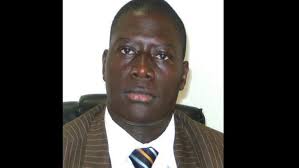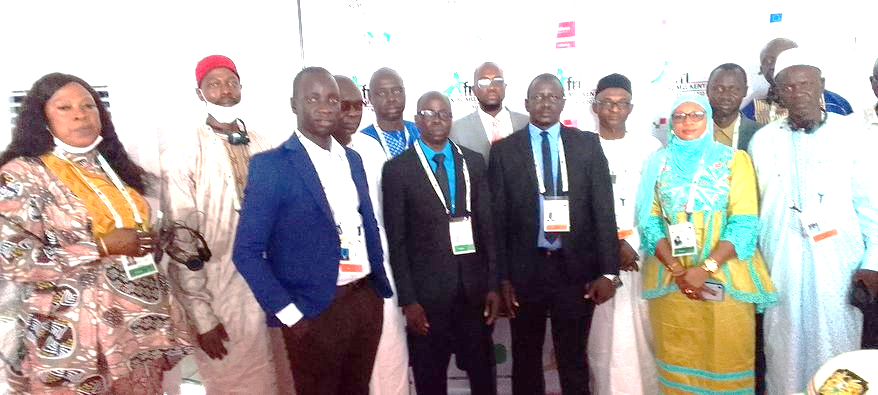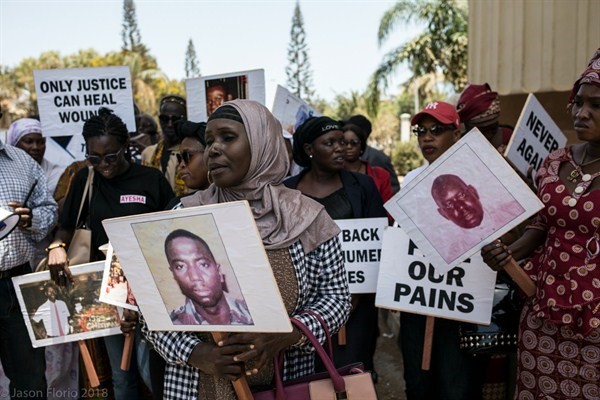The Ministry of Basic and Secondary Education, the Office of the First Lady of The Gambia, UNICEF and the Education Above All (EAA) Foundation launched a major project to ensure that every primary school-age child in The Gambia is in school, enabling 66,765 out of school children and adolescents to have access to quality primary education.
Launched Thursday at Sir Dawda Kairaba Jawara International Conference Center, Bijilo, the three-year project will be implemented across the country by the Ministry of Basic and Secondary Education, ChildFund The Gambia and the Education for All Campaign Network (EFANET), in close coordination with UNICEF and the Education Above All Foundation’s Educate A Child (EAC) programme with support from the Qatar Fund for Development (QFFD).
The Zero Out of School Children in The Gambia project, the latest to join EAA’s Zero OOSC: Educate Every Child initiative, will also ensure that adolescents who missed primary school have another opportunity to return to school through non-formal alternative learning.
“This project represents an important milestone in our drive to attain universal access to quality education for every child,” said Hon. Claudiana Cole, Minister of Basic and Secondary Education.
“Access to quality education also includes ensuring that every child enrols at the right age and stays in school until completion. This is the vision of the Government of The Gambia, in line with our new Green and Recovery-Focused National Development Plan and we are grateful to the Education Above All Foundation and UNICEF for supporting this vision.”
The project will work with education stakeholders, including school authorities, children and adolescents, communities, and parents to identify and enroll all primary school-age children who are not in school and provide services to help children enroll at the right time and stay in school.
These services will help address the challenges that keep children out of school – construction of more than 50 disability-friendly classrooms, over 100 water, sanitation and hygiene facilities, procurement of education supplies for thousands of students annually, including for students with disabilities, and capacity building for 500 teachers and headteachers in management and pedagogy.
This project is part of a decade-long commitment by EAA and UNICEF to work together to enable equitable access to quality education, especially for the hardest-to-reach children.
“Children everywhere, irrespective of their gender, socio-economic standing, physical and mental abilities and other factors, have the same fundamental right to quality education,” said Mr Gordon Jonathan Lewis, UNICEF The Gambia Representative. “This initiative is an important step toward fulfilling our duty to ensure every child is in school and learning at the right level. Children have dreams to pursue and their futures to build, and quality education is a springboard to success.”
Another important focus of the project is the provision of alternative learning programmes for out of school boys and girls. This includes remedial lessons such as evening classes for adolescents who dropped out or are at risk of dropping out of school. Additionally, children in traditional Quranic schools, or Majalis will be provided with literacy and numeracy lessons to facilitate their transition to conventional schools.
“Reaching Zero out of school children is critical, especially in today’s climate of multiple crises,” said Dr Mary Joy Pigozzi, Executive Director of EAA’s Educate A Child programme. “Often, the last remaining pockets of OOSC need extra special attention, this project will ensure that learners are supported to overcome the barriers to a quality primary education, no matter their circumstances. It will also demonstrate that countries such as The Gambia can fulfill their promise of education for all.”
To strengthen the data system and properly monitor out of school children, the project will use an innovative approach that links the Birth Registration system and School Admission Register to track and monitor children who are out of school. By doing this, the Ministry of Basic and Secondary Education will be able to identify children who are not enrolled in school and provide them with the necessary support to get them back into school.
The project will be implemented in close collaboration with communities and schools to ensure that every eligible child, no matter where they live in the country, can benefit from a quality primary education.




